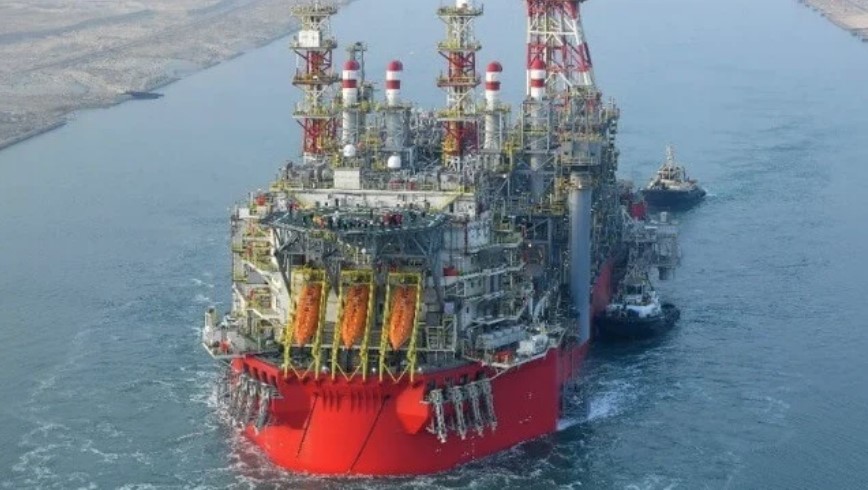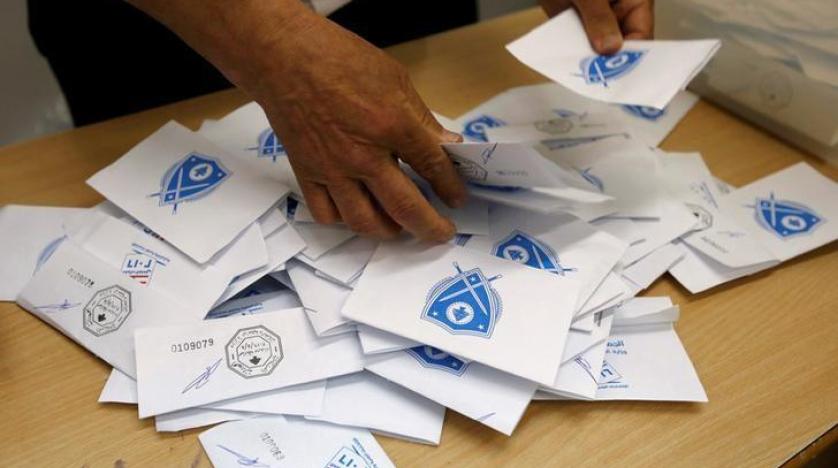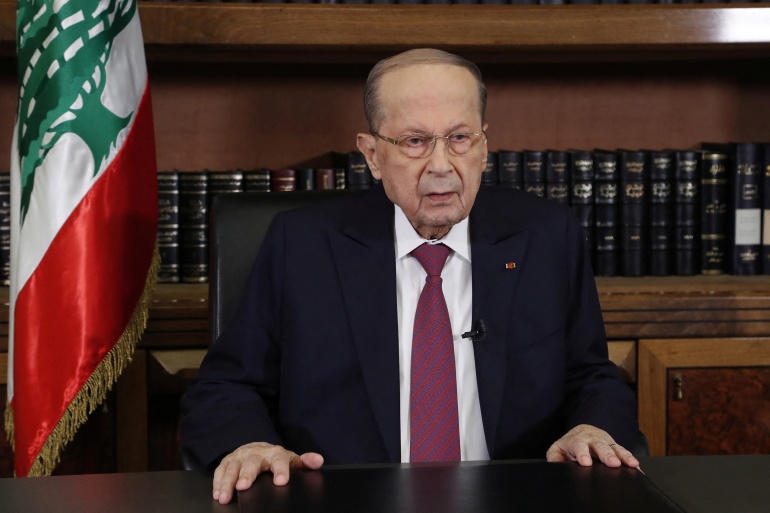
PUBLISHED BY THE LOWY INTERPRETER -- [By Rodger Shanahan] -- There has been little to cheer about of late in terms of positive developments towards peace in the Middle East. But this week, the news came from an unexpected source – relations between Lebanon and Israel. An agreement demarcating a maritime boundary between the two countries allows for the exploitation of gas and oil fields below the waters of the Mediterranean. A decade in the making, this important agreement, when ratified, holds the potential to lead Lebanon out of its economic misery. It also could establish a blueprint for negotiations that may lead to further reductions in tension between the two countries. It is right to treat the good news with some caution though. So many things could diminish the potentially positive outcomes contained in the agreement.
First, and perhaps most importantly, the agreement is by no means a panacea for Lebanon’s economic ills, which are so systemic that no potential windfall from Mediterranean oil and gas is likely to alleviate them. The degree to which servicing personal patronage networks, rather than pursuing the national interest, remains the focus of many Lebanese politicians is best illustrated by the government’s unwillingness to undertake the necessary reforms negotiated with the International Monetary Fund despite the country facing its worst economic crisis since the civil war.
Another reason for not bringing out the party whistles just yet is the fact that any potential windfall from offshore oil and gas deposits for Lebanon is both uncertain and, if viable, would be years away from realisation. And one of the potential gas fields (Qana Prospect) lies across the agreed maritime boundary (Line 23 in the map) and the remuneration for Israel’s share of the profits from the field will be decided between the commercial operator of the field (exploiting the field on behalf of the Lebanese government) and the Israeli government.

By Jamie Prentis -- thenationalnews.com -- Lebanon's parliament has failed for a second time to elect the country's next president, with not enough MPs present to reach the quorum. Speaker Nabih Berri adjourned the house until October 20, less than two weeks before the term of incumbent Michel Aoun expires. With a consensus candidate yet to emerge, the prospect of a presidential vacuum looms. An attendance of two thirds — or 86 MPs ― in the 128-seat Parliament is required to meet the quorum. But only 71 were present in the deeply divided chamber on Thursday. Lebanese Parliament fails to elect new president in first round of voting
This is the second time that MPs have failed to elect Lebanon's next head of state after no clear winner emerged during a vote at an initial session on September 29. On that day, MP Michel Moawad, whose father Rene served as president for 18 days in 1989 before being assassinated, received the most votes, with 36. He was mainly backed by a grouping of MPs who are critical of Iran-backed Hezbollah, the armed group and political party that has significant sway in Lebanon. “We are ready at any time to elect a president but it is clear today that several parties are not ready for the presidential election because of differences,” said Georges Adwan, a senior MP in the Lebanese Forces party.
The LF, a staunch critic of Hezbollah, supported Mr Moawad in the last round. In the first polling round, a two-thirds majority is required to win. But only an absolute majority is needed in subsequent votes. The failure to find a successor to Mr Aoun, 89, in the first two rounds was not unexpected and has precedent — it took 46 sessions and 29 months for parliament to elect the former army commander in 2016.

By Daniel Stewart - msn.com -- Lebanese President Michel Aoun confirmed Thursday in an address to the nation that Beirut has approved the agreement reached Tuesday with Israeli authorities to demarcate their common maritime border, a pact he called "historic". "This indirect agreement responds to Lebanese demands and preserves our rights in their entirety", Aoun assured after accepting the conditions set by the last proposal of the American mediator, Amos Hochstein. He stressed that this pact between the two nations, which he described as a "historic achievement", has stipulated "how to resolve any future disputes", while assuring that the country's land borders "have not been touched".
Hezbollah leader says will back maritime border agreement Aoun explained that Lebanon has preserved "an area of 860 square kilometers" without ceding "any kilometer to Israel". "No normalization was reached with Israel, no direct talks or agreements were concluded," he added, as reported by the Lebanon 24 news portal. The day before, the Israeli government also approved the provisions of the agreement with an "overwhelming majority", as announced in a statement, in which it assured that it would go before Parliament to give it a final 'yes'. The pact recognizes the border set with buoys by Israel, allowing Lebanon to enjoy exploitation of the area north of Line 23, including the Qana field. Israel would retain control of Karish and has said it could start work in the area, amid threats to do so by the Lebanese Shiite militia-party Hezbollah.

سجعان قزي
@AzziSejean
لا يجوز الخلطُ بين الشكلِ (كَبْوةُ لياقةٍ في تحديدِ موعدِ جلسةِ الانتخابِ في 13 تشرين الأوّل بالذات) وبين الجوهرِ (انتخابُ رئيسٍ جديدٍ للجُمهوريّةٍ مهما كان موعدُ الجلسة). وإذا كان القصدُ من تحديدِ 13 تشرين هو خلقُ إشكاليّةٍ تُعطِّلُ انعقادَ الجلسة، فأبسطُ قواعدِ الذكاءِ أنْ تُطوَّقَ هذه الإشكاليّةُ المتَعمَّدةُ بالحضورِ وبانتخابِ رئيسٍ أو بتحويلِها شرارةَ ثورةٍ وطنيّةٍ إذا لم يَتمّ انتخابُ رئيس. سنةَ 1798، حين رَفضَ الملكُ لويس السادس عشر إجراءَ الإصلاحاتِ المطلوبةِ، انتفض "ميرابو" وتوجّه على رأسِ "عامّةِ الشعب" (Tiers Etat) وقِوى أخرى إلى قلعةِ الـــ"باستيل" حيث كان السلاحُ مُخزَّنًا ومكدَّسًا ووَضعوا أيادِيهم عليه، وانتقلت فرنسا من إجراءِ إصلاحاتٍ إلى انطلاقِ ثورة.
مُعضِلتُنا في لبنان أنّنا في إصلاحاتٍ خطأٍ، وفي ثورةٍ خطأٍ، وفي دولةٍ خطأ. وإذا حلَّ علينا يومٌ صَحٌ أنْجزنا فيه عملَا خطأ. لذلك، الرهانُ اليوم يتعدّى رمزيّةَ المواعيد إلى خطورةِ المرحلةِ حيث أنَّ لبنانَ يجتازُ أخطرَ أزْمةٍ وجوديّةٍ بغلافٍ سياسيٍّ ودستوريٍّ واقتصاديّ. كما يعيشُ العالمُ حربًا شبهَ عالميّةِ بين روسيا وأوكرانيا وأوروبا، ما يَفرِضُ على لبنانَ أن يَتحصّنَ بشرعيّةٍ طبيعيةٍ وكاملةٍ لمنعِ أيِّ طرفٍ داخليٍّ أو دولةٍ أجنبيّةٍ من وضعِ اليدِ عليه.
Khazen History


Historical Feature:
Churches and Monasteries of the Khazen family

St. Anthony of Padua Church in Ballouneh
Mar Abda Church in Bakaatit Kanaan
Saint Michael Church in Bkaatouta
Saint Therese Church in Qolayaat
Saint Simeon Stylites (مار سمعان العامودي) Church In Ajaltoun
Virgin Mary Church (سيدة المعونات) in Sheilé
Assumption of Mary Church in Ballouneh
1 - The sword of the Maronite Prince
2 - LES KHAZEN CONSULS DE FRANCE
3 - LES MARONITES & LES KHAZEN
4 - LES MAAN & LES KHAZEN
5 - ORIGINE DE LA FAMILLE
Population Movements to Keserwan - The Khazens and The Maans
ما جاء عن الثورة في المقاطعة الكسروانية
ثورة أهالي كسروان على المشايخ الخوازنة وأسبابها
Origins of the "Prince of Maronite" Title
Growing diversity: the Khazin sheiks and the clergy in the first decades of the 18th century
Historical Members:
Barbar Beik El Khazen [English]
Patriach Toubia Kaiss El Khazen(Biography & Life Part1 Part2) (Arabic)
Patriach Youssef Dargham El Khazen (Cont'd)
Cheikh Bishara Jafal El Khazen
Patriarch Youssef Raji El Khazen
The Martyrs Cheikh Philippe & Cheikh Farid El Khazen
Cheikh Nawfal El Khazen (Consul De France)
Cheikh Hossun El Khazen (Consul De France)
Cheikh Abou-Nawfal El Khazen (Consul De France)
Cheikh Francis Abee Nader & his son Yousef
Cheikh Abou-Kanso El Khazen (Consul De France)
Cheikh Abou Nader El Khazen
Cheikh Chafic El Khazen
Cheikh Keserwan El Khazen
Cheikh Serhal El Khazen [English]
Cheikh Rafiq El Khazen [English]
Cheikh Hanna El Khazen
Cheikha Arzi El Khazen
Marie El Khazen